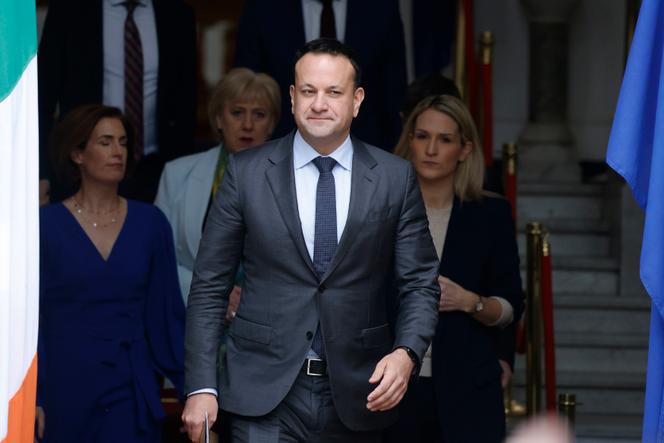


The announcement was totally unexpected. Leo Varadkar, 45, Ireland's Taoiseach, or prime minister, caught everyone by surprise by announcing his immediate resignation, Wednesday, March 20. Varadkar, who was the leader of the Irish government since December 2022, after a first stint between 2017 and 2020, will also relinquish the leadership of Fine Gael, the center-right party he has chaired since 2017.
He did not call for a general election – although the next one must be held by the end of February 2025 at the latest – and will therefore be replaced as Taoiseach and party leader in the coming weeks by a member of his own party.
On the steps of Leinster House, the seat of the Oireachtas, Ireland's parliament, in Dublin, Varadkar cited "both personal and political" reasons for his departure, and said a new Taoiseach "will be better placed than [him]" to take Fine Gael forward in the general election. His replacement will have to face two other important elections in June: local elections and the European elections.
Varadkar's resignation comes two weeks after a brutal setback for his government, following the two "no" votes in referendums on proposed changes to the Constitution: one to modernize the definition of the family, the other to clarify and broaden the description of women's role in society. The rebuff was attributed to the government's confused and unconvincing explanations of the new language, rather than a refusal from voters to refresh their Constitution.
The son of an Indian immigrant, and openly gay, Varadkar embodied a new generation of Irish leaders, more modern and in tune with a country changing fast. In less than 20 years, the Republic of Ireland went from being an ultra-conservative society governed by the Catholic Church to an inclusive society, attached to gender parity and equality. It legalized same-sex marriage in a relatively consensual manner in 2015, then abortion in 2018.
Varadkar will be remembered as a dynamic politician, a perfect representative of the urban middle classes, who spoke less to the working and rural classes. He also distinguished himself during the Brexit negotiations by adopting a hard line towards London and fiercely opposing the return of a customs border on the island, between the Republic of Ireland and Northern Ireland, which is part of the United Kingdom.
Instead, a customs border in the Irish Sea between Northern Ireland and Great Britain was agreed, following a deal between Brussels and London, struck by British Prime Minister Boris Johnson and Varadkar in 2019. Northern Irish unionists, who support the province's membership to the UK, have not forgiven the Irish leader for his stance.
You have 50.89% of this article left to read. The rest is for subscribers only.
